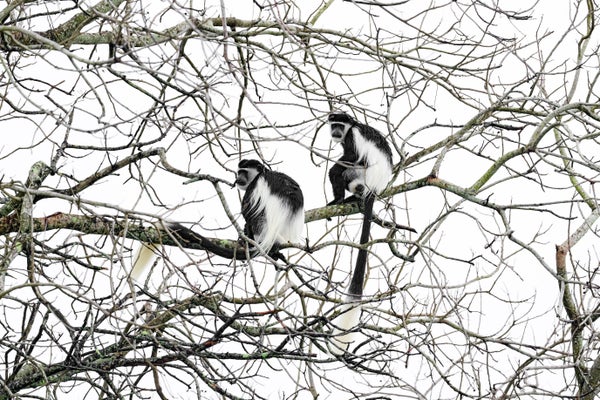How Ugandan Tobacco Farming Inadvertently Threatens Spread of Bat-Borne Viruses
By cutting trees in response to international demand for tobacco, farmers induced wildlife to start eating virus-laden bat guano
Black and white colobus monkeys in Uganda have been seen eating bat guano loaded with viruses.
Ondrej Prosicky/Alamy Stock Photo
Zoonotic diseases, or illnesses transmitted from animals to humans, account for about three quarters of new infectious diseases around the world, including some that could lead to pandemics. The risk of a pathogen jumping from an animal to a human increases when people encroach on ecosystems and cause relationships to be disrupted between species—but how that risk actually becomes a reality can be unpredictable and difficult to untangle.
A new paper published this week in Communications Biology shines rare light on one such case study: an example showing how international demand for tobacco led to habitat alterations in Uganda that seemingly drove chimpanzees and other species to begin consuming bat guano for mineral nutrients. In that process, the animals might have been exposed to more than two dozen viruses, including a novel cousin of the COVID-causing pathogen SARS-CoV-2.
“This is the butterfly effect of infectious disease ecology,” says senior study author Tony Goldberg, a wildlife epidemiologist at the University of Wisconsin–Madison. “Far-flung events like demand for tobacco can have crazy, unintended consequences for disease emergence that follow pathways that we rarely see and can’t predict.”
On supporting science journalism
If you’re enjoying this article, consider supporting our award-winning journalism by subscribing. By purchasing a subscription you are helping to ensure the future of impactful stories about the discoveries and ideas shaping our world today.
Goldberg and his colleagues’ study focuses on human and ecological interactions in the Budongo Forest Reserve in western Uganda. The…
Read the full article here







